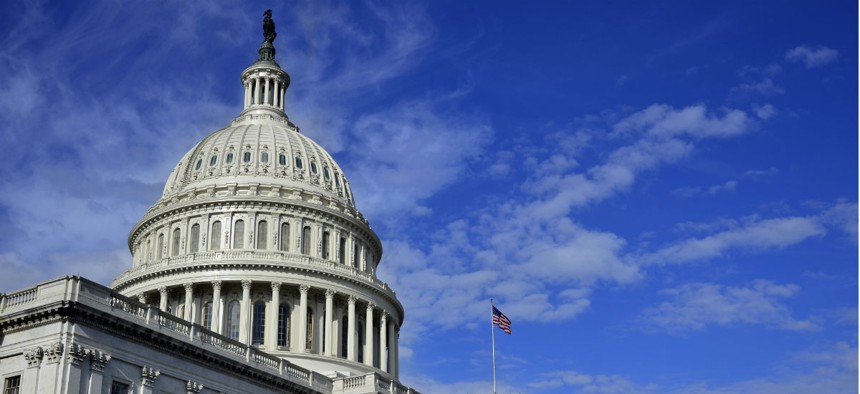As Spending Talks Break Down, a Pay Raise for Feds Hangs in the Balance
Lawmakers continue to negotiate how to include a 1.9 percent increase for civilian employees in a shutdown-averting bill.
With eight days remaining until a deadline for lawmakers to avert a partial government shutdown, one issue facing all federal workers remains unsettled: a pay raise.
Congress and President Trump have until Dec. 21 to agree to a deal on seven appropriations bills, which include funding for the Transportation, Housing and Urban Development, State, Interior, Agriculture, Treasury, Commerce, Homeland Security and Justice departments. The spending package will also mark the last chance for lawmakers to overrule Trump’s plan to institute a pay freeze for civilian federal employees in 2019.
Democratic congressional leaders said earlier this week they have offered Trump two options to avert a partial government shutdown: a minibus containing the vast majority of the agencies that still need appropriations bills and a continuing resolution for the Homeland Security Department, and a full-year CR for all of the unfunded agencies. So where does a potential 1.9 percent pay raise, initially included in a Senate-passed appropriations bill, fit into each scenario?
In the scenario where there is a CR only for the Homeland Security Department and the other unfunded agencies are grouped together in a minibus appropriations bill, lawmakers are still negotiating over how a pay raise could be included in the minibus. A House Democratic aide said that although Republican appropriators have agreed to include the raise in the final bill, they have insisted that the provision be paired with the lifting of a long-running freeze on pay for the vice president, Cabinet members and other senior political appointees.
“We continue to oppose linking those issues,” the aide said. “We support the pay raise, but we oppose lifting the freeze. So we hope they would drop their insistence on that, and those negotiations are ongoing.”
In the scenario where Congress approves a wider continuing resolution for all unfunded agencies, a pay raise also could be included in that legislation. “In the absence of legislative language that would cause [federal employees] to get a pay raise, they wouldn’t get one, and the president’s decision [to freeze pay] would stand,” the aide said. “But you can write into a CR any provision you want, so we could include in it language to include the pay raise.”
The Democratic aide described the broader continuing resolution proposal as a “backstop” if Trump rejects the minibus option. If Trump ultimately rejects both offers, and the ensuing partial shutdown lasts into January, Trump’s pay freeze plan likely would go into effect. In the absence of congressional action to include a pay raise, the president must issue an order before the end of the year finalizing his proposal.
Spending talks appear to have broken down after the public portion of a meeting between Trump, House Minority Leader Nancy Pelosi and Senate Minority Leader Chuck Schumer Tuesday devolved into a shouting match over the president’s demand of $5 billion for his proposed wall along the U.S.-Mexico border. Most House lawmakers will not return to Washington until Dec. 19, although they will be “on call” in case a deal is reached sooner.
Military members are slated to receive a 2.6 percent pay raise in 2019.




